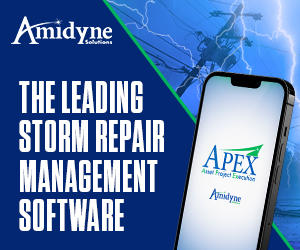Vulcan officially opened its Lithium Extraction Optimisation Plant (LEOP) in Landau, Germany, in a ceremony attended by local community, shareholders, politicians, strategic partners and industry.
- Official opening and start of Vulcan's Lithium Extraction and Optimisation Plant (LEOP) in Germany.
- Europe's first plant for fully domestic lithium chemicals production, to secure Europe's lithium supply chain for Battery Electric Vehicle (BEV) manufacturers.
- Produced from the largest lithium resource in Europe, the Upper Rhine Valley Brine Field.
Representing a 40m investment by Vulcan, LEOP is an optimisation, operational training and product qualification facility, to enable commercial operational readiness. - Part of the ZERO CARBON LITHIUM Project, renewable heat in the lithium brine resource allows Vulcan to produce with a net zero carbon footprint, a world first in lithium
Vulcan officially opened its Lithium Extraction Optimisation Plant (LEOP) in Landau, Germany, in a ceremony attended by local community, shareholders, politicians, strategic partners and industry.
The start of operations at LEOP will signify the first lithium chemicals which will be produced in Europe with an entirely locally sourced value chain. The renewable heat in the lithium brine resource at the Zero Carbon Lithium Project will also enable Vulcan to produce with a net zero carbon footprint and coproduction of renewable energy, a world-first in the lithium industry.
Vulcan has successfully tested and piloted lithium production using in the Upper Rhine Valley Brine Field for nearly three years, including at its pilot plants in Insheim and Landau. Over 10,000 hours of successful in-house pilot plant performance testing has been conducted to date, showing high lithium recoveries and thousands of cycles of sorbent life with no degradation. Vulcan uses its proprietary in-house sorbent,
VULSORB®, which has shown a high-performance relative to "off the shelf" products. Vulcan has proven that the sustainable lithium production process Adsorption-Type Direct Lithium Extraction (A-DLE), which accounts for 10% of global lithium production today, can be successfully applied in the Upper Rhine Valley, heated and powered by geothermal renewable energy. This means that Europe can not only produce its own locally-sourced lithium for battery electric vehicles, but also do so with a world-leading net zero carbon footprint.
Vulcan's LEOP will serve as an optimisation facility and training ground for its production team, producing tonnes of lithium chloride, whilst the Phase One commercial plant is being constructed and commissioned over the next two and a half years.
Currently, the EU has set a target of 100% of vehicles to be zero emissions by 2035, indicating Europe will see a 57-fold increase in lithium demand in the coming years; until now, there has been zero local lithium supply. Vulcan's Zero Carbon Lithium Project, with integrated renewable heat, renewable power and lithium production, will pave the way for Germany and more broadly Europe toward achieving a net zero shift
in mobility and energy.
With lithium offtake agreements in place with Stellantis, Volkswagen, Renault, Umicore and LG, Vulcan is delivering towards a competitive and sustainable battery industry in Europe across the entire value chain. Once Phase One commercial production commences, Vulcan's ZERO CARBON LITHIUM business will produce enough lithium hydroxide for 500,000 BEVs, as well as providing renewable heating to local communities and generating thousands of direct and indirect energy transition jobs.
The opening of LEOP is timely given the EU reached a resolution and agreement on the Critical Raw Materials Act last week, as lithium is at the top of the "Critical Raw Materials list" for the BEV industry. This creates a policy tailwind for Vulcan as it readies for Phase One commercial project execution production.
Vulcan's CEO and Managing Director, Cris Moreno, stated, "Vulcan and its ZERO CARBON LITHIUM business is driving new standards of sustainability in the lithium industry, whilst being at the forefront of creating a new, locally-supplied lithium industry for BEVs in Europe. Our LEOP plant is ready to start production. This is not just an achievement for Vulcan; it's a step towards Germany, and more broadly Europe, securing the lithium it needs to help its auto industry survive and thrive in the electric age, without compromising on ethical or sustainability standards." A week ago, Vulcan presented the results of its Bridging Study, showcasing a solid financial position and reduced CAPEX as we advance our Phase One commercial project. The financing for Phase One has commenced, and with our LEOP start, we are building a pathway towards ZERO CARBON LITHIUM from Europe, for Europe."










